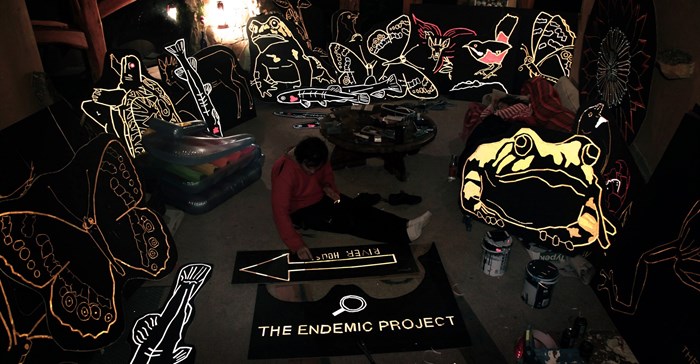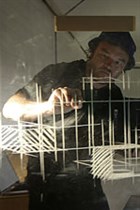Marketing & Media trends
Industry trends
BizTrends Sponsors
Trending




 Does anyone know what content is any more?Justine Drake
Does anyone know what content is any more?Justine Drake
[BizTrends 2016] Future film
1.8 billion images are uploaded daily and most astonishingly this content is largely created by users.
The original film of a horse galloping, or a train hurtling at the camera that blew the minds of the first cinema audiences, might get a 'like' today - but it won't get a scream.
Today, the individual frames of the 'collective' film are shared real-time from all over the world, combining in streams that flow faster than any of us can expect to live. A virtual, real-time, time-lapse of everything - all at once.
In this world we are forced to explore what it means to be a filmmaker. Whether we are working in a commercial/brand environment or as art or entertainment, the paradigm is shifting.
Virtual reality
When you think of the future of film, the obvious direction would be virtual reality (VR). A conceptual technology that has existed in our popular culture for so long that the real thing now feels as inevitable as the hover board.
It's a mass medium like the radio, television or the internet and a real game changer. Personally I find it problematic, and plagued by visions of a world of couch potatoes existing only in virtual reality. I hesitantly tried the Oculus Rift goggles on for the first time... and ... mind blown - like a horse galloping... on a train... and you are sitting on the horse!
VR is a wave that's only gathering speed and will explode in 2016, with platforms like YouTube being VR content ready as a 'flat screen' alternative viewing source, and cheaper 'hacks' available like Google Cardboard that mount your own phone into a VR headset made of cardboard. For an example of YouTube hosting 360 vision content, travel inside the barrel of a wave in Tahiti.
The hype of this new medium is already being celebrated in South Africa with the recent VR exhibition at Goethe in Johannesburg and the formation of the first virtual reality community in Cape Town.
My own experiments into future film are perhaps more exploratory, including but not limited to VR, using new technologies and systematically deconstructing filmmaking into its essential elements and reworking them as a way to create immersive installation experiences that allow people to feel a moment of transcendence and connection. These are perhaps more in the spirit of the prodigious trailblazer Chris Milk, who has been a real inspiration by creating a place where people turn into birds.
Geotagged soundscapes, experiential cinema
My first foray into future film, The Endemic Project, was a series of creatures, seemingly painted with light, that appear as you drive along Rhodes Drive from the Kirstenbosch bottom main entrance towards Constantia Nek circle. If you download the geo-tagged soundtrack, as you drive past each creature, you trigger a soundscape made from its voice. I deliberately kept it very simple and only played with certain elements. Remove the camera - place the audience into the experience. Make it site specific - you have to be there. Let the car's motion be the element of time and narrative.

As future filmmakers we can no longer only deal in image, sound and narrative; we must now also think like app developers and programmers, architects, user interface gurus, hackers and makers. I wish I could just sing beautifully or dance like a pantsula and I wouldn't need to learn all this.
I don't know where I am going yet. I am trying to find new ways to tell stories, new ways to be a filmmaker.
My doodles on the subject can be found here: www.futurefilm.co.za.






